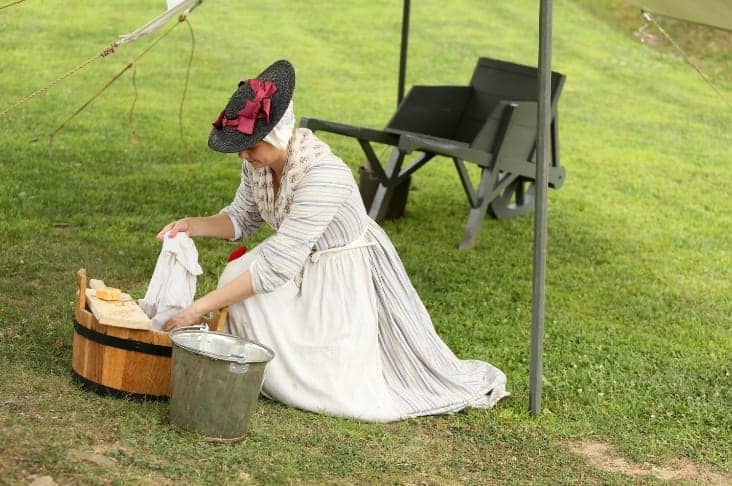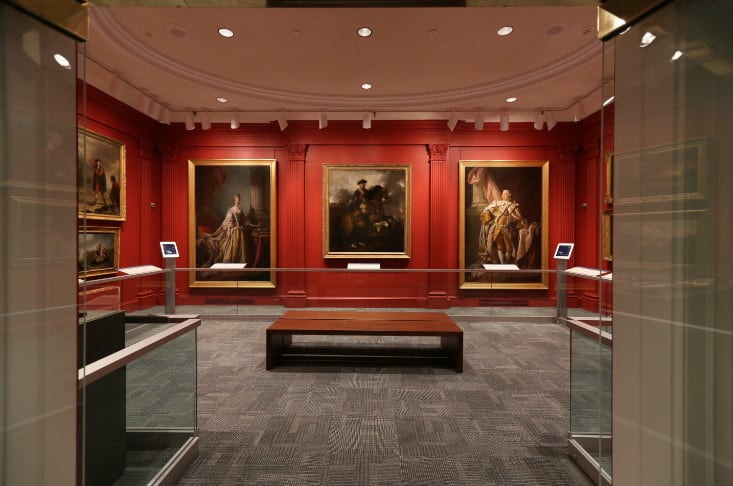
Today, Pittsburgh is growing into a booming community of technological and medical innovation. Built on a deep foundation of industry--much of which persists not only spirit but in the new as well as historic businesses that call our region home--our city continues to play a role on national and international stages. The journey Pittsburgh has taken as the city of steel began even before the United States was officially formed.
Pittsburgh's backbone of hardworking, revolutionary spirit goes back as far as the original settlers coming to America.
As one of the most important locations of the French and Indian War - which ultimately led to the colonial uprising that ended in the formation of the United States - Fort Ligonier is a historical landmark that helped make our nation what it is today, and it sits just an hour and a half outside of downtown Pittsburgh.
As the Fort's historian and curator, Erica Nuckles has put her heart and soul into make the site the successful attraction it is today. She started her work at Fort Ligonier four years ago and ultimately redesigned seven out of the museum's eight exhibits, which include an art gallery and a display illustrating the history of the Fort's reconstruction. The process involved extensive research, writing, and artifact procurement.
Nuckles' work on the exhibitions is far from her only responsibility at the Fort, though. She quite literally wears many hats, often dressing in full 18th century attire to give tours or perform reenactments.
"On any given day, I could be working on exhibits or collections, doing research for a project or a talk, or giving a tour to anyone from little kids to a group of scholars," she says.
It's a lot of work, but Nuckles couldn't imagine her life any other way. "I grew up in a family of French and Indian War reenactors," she says. "I was constantly going to forts and historic sites, sleeping in tents for reenactments."
This lifestyle fostered her passion for history, and she went on to get her first degree in anthropology, then her Master's in museum studies, and finally her PhD. In history. Being educated on history both in the classroom and out in the field is part of what made her want to help bring the past back to life for other people.
"I've always loved being able to recreate scenes and dress like people did during a given time period. That alone helps you understand history in a more personal way," she says. "Trying to understand people's lives, learning how to cook the way they did... It gives you a more personal connection with the past. It's difficult to do that when you're learning basic history in school."
Nuckles says that many Pittsburgh natives live their whole lives in the city without learning the role that Western PA played in U.S. history. "You can't understand our country without going back to the French and Indian War. The war started over Western PA because of the three rivers," she explains. "We like to say that we helped make Pittsburgh possible. George Washington was here and part of that war from the very beginning. Some credit him with firing the first shots that sparked the Seven-Years War."

The significance of the Fort is reflected in the efforts made to establish it as the finest of its kind. "It's very important that it's been preserved and that we have such a wonderful archaeological collection from the site. We have the only permanent exhibit of the Seven-Years War in the country. The original Fort only existed for eight years; we have almost a complete reconstruction of what it would've looked like around that time. We've reconstructed the entire artillery train, which is the most expensive one in the world," says Nuckles.
While the Fort's visitors are mainly comprised of schoolchildren on field trips (about 7,000 students per year) and retirees, Nuckles encourages anyone who's interested in learning more about the area's history to become a member. "Members can come here anytime they want and bring people here to get special rates on certain events. They also get our newsletter to keep up with what's going on at the Fort," she says. She also emphasizes that the Fort hosts History Happy Hours, which include music, wine, beer, and local food. "If people really want to get involved, they can also become volunteers and give tours."
A trip to Fort Ligonier isn't just a fun, educational day trip - it's a glimpse into Pittsburgh's lifelong history of standing up for the common man and woman in their pursuit of happiness.
Visit Fort Ligonier's website to learn more about its role in local and national history and discover more ways to get involved.
"*" indicates required fields